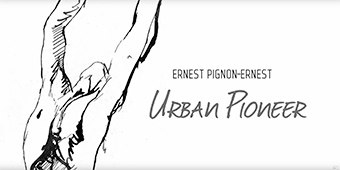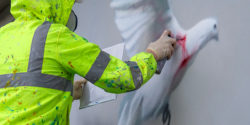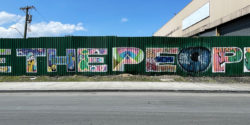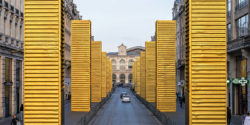IItalian Street artist Bifido has perfected his technique of dissolving his wheat-pasted photography into aerosol painting on the street, producing a seamless atmospheric story that leaps from the wall; evocative of oil masters but somehow with hyper real people living presently in a surreal tableau. Narrative also has been sharpened and emerges as being intently purposeful.
In this new series of artworks we learn about folks who are living in a modest sized town here that, like many towns in Italy, is being quietly and radically transformed by its shrinking population of aging citizens.
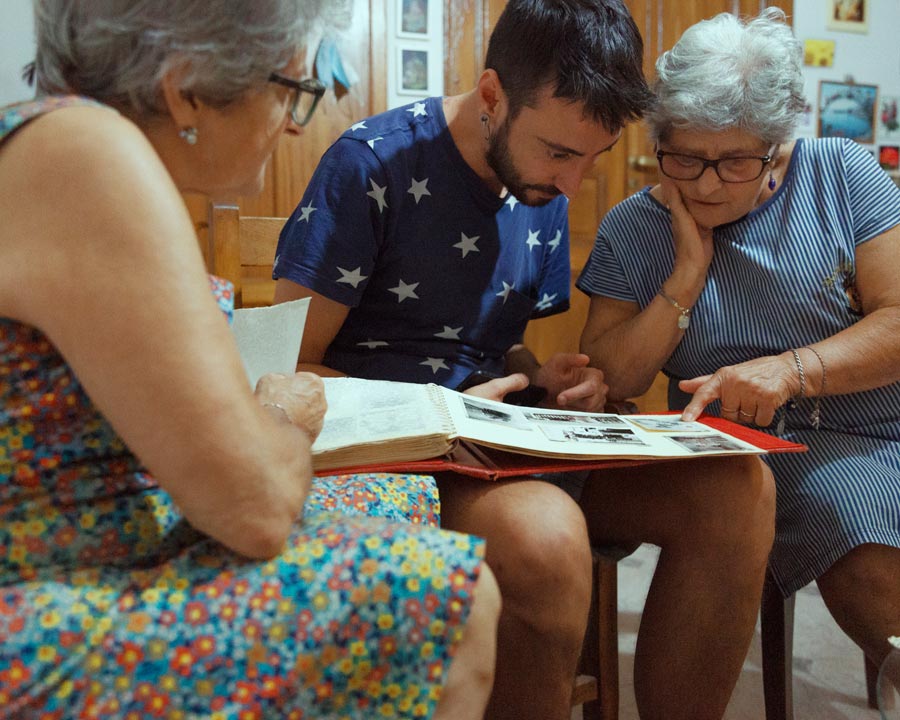
By interviewing the inhabitants and becoming familiar with this small interconnected community, sometimes intimately so, he is determined to help tell their stories, their histories. A collaborative practice, Bifido is there when they see the finished piece in public space.
Today we’re pleased to present Bifido’s newest works in Stigliano, accompanied by his own words to describe the process of creating them.
I spent a month in Stigliano, a small town, in an equally small and remote region of southern Italy. I was able to immerse myself totally in the reality of the people who live there, learning incredible stories. During this time I worked on 4 murals around the village. Stigliano rises to 1200 meters above sea level and you can see a boundless landscape. The feeling of isolation is very strong.
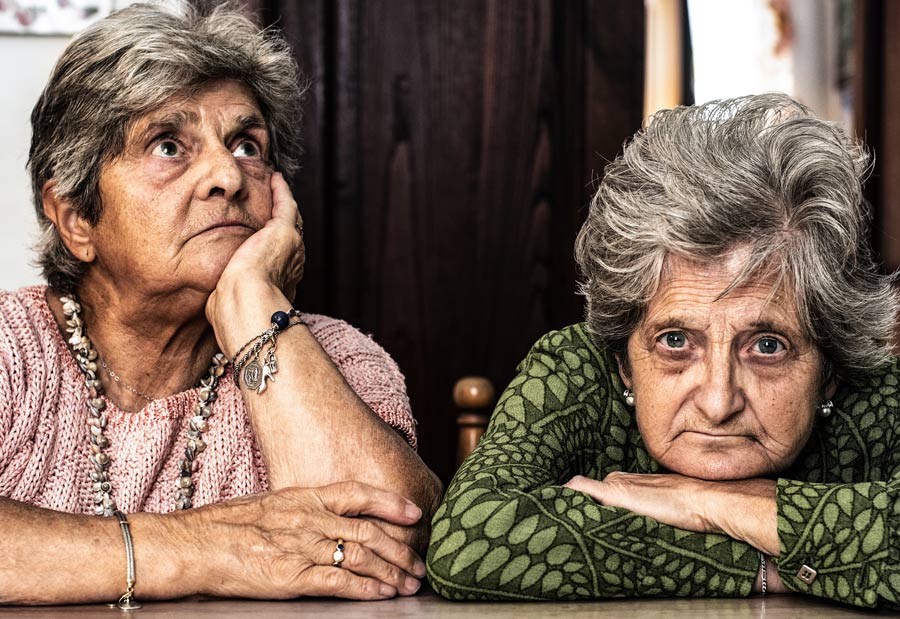
The work that most involved me is on two eighty-year-old sisters. Giulia and Filomena. They were locked in the house by a jealous father for nearly 40 years. They could only go out with their mother and only go to church. No school, no friends. They could not even see their relatives, because they had studied and this could negatively affect them. Their father said: “A woman can leave the house 3 times in her life, at baptism, marriage and funeral ”. Obviously because they could not go out, they’ve never had a chance to meet someone and fall in love.
They were not very familiar with either watching television or listening to the radio. Every February there is an Italian song festival. During the time of their isolation they tell me that they would sneak past the windows trying to listen to the songs of the neighbors’ radios. Being able to hear only the melody and not the words, they rewrote the lyrics according to their life.
After a life of repression and isolation, these two sisters are two women full of life, curiosity and empathy. They are very different, but they belong together. They sleep in the same room, on cots separated by a bedside table, and in the darkest nights they shake hands “giving courage”. But if the dark nights are truly haunted, they snuggle together in the same bed. And if you look at them from above they look like strong roots stuck in the mattress.
you have to be a rock
to roll fast
you have to be a rock
to be shaped by the wind
you have to be a rock
to withstand the blows
you have to be a rock
to look into the abyss
you have to be a rock to laugh at life
(Giulia, Filomena and Bifido)


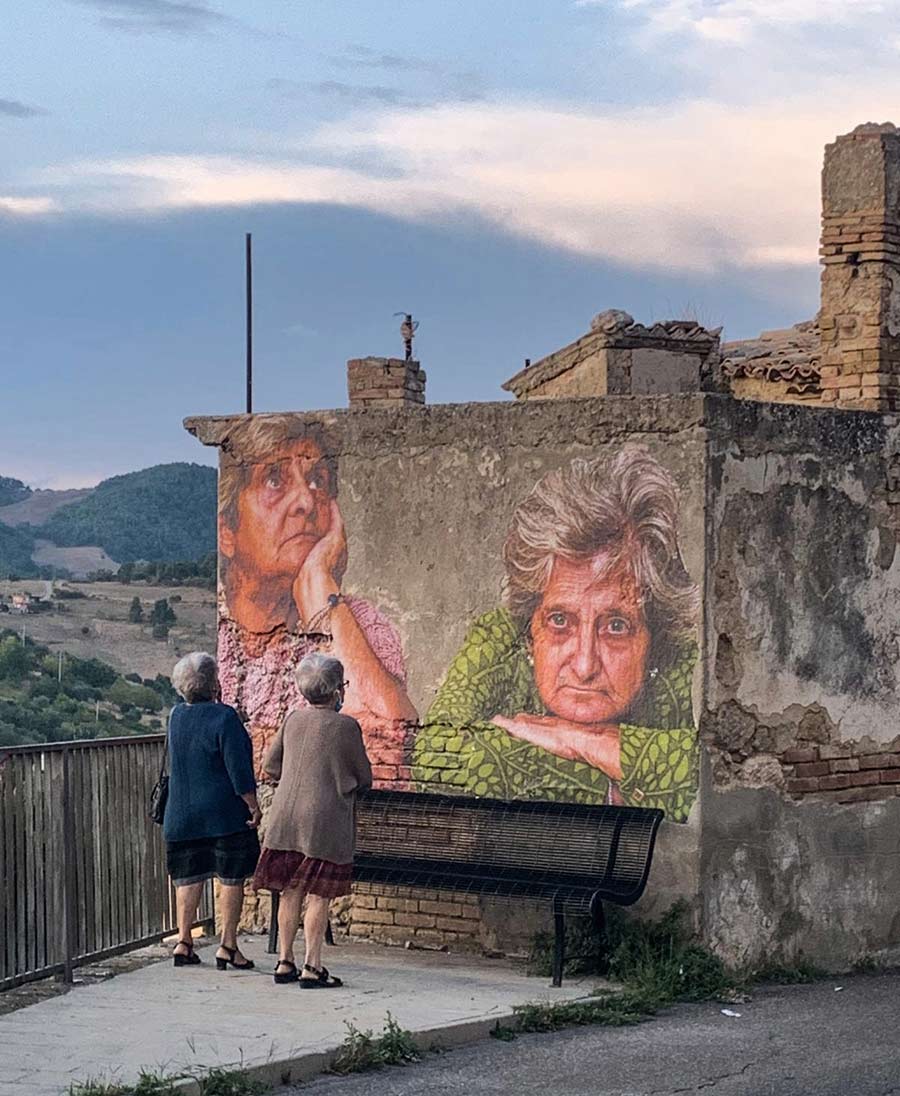

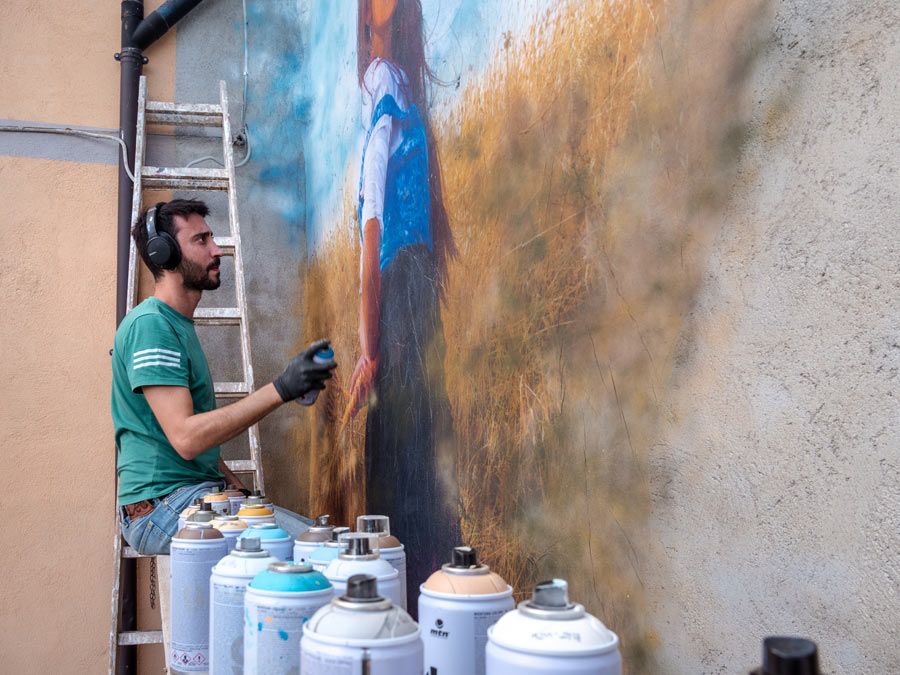
I made two interventions in the historic center of the town, now almost completely uninhabited. A wonderful and desperate place. Full of silence and beauty. Stigliano has lived for years thanks to the wheat harvest and peasant life has characterized the town throughout its history.
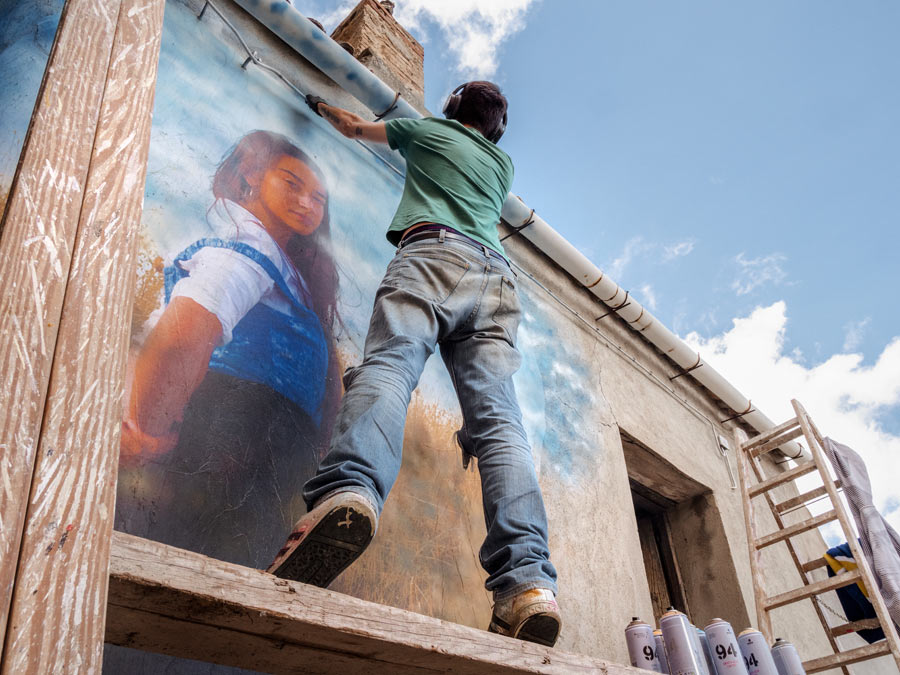
I portrayed a peasant woman with wheat. Symbol of the city. And I installed it in one of the dark and forgotten alleys of the city and on a real farm. I wanted to give prestige to something noble and beautiful, but also to make the walls of this semi-abandoned town remember the souls who lived there. The peasants were also carriers of revolt. I want to remember the memory and tell people not to forget and fight for survival.
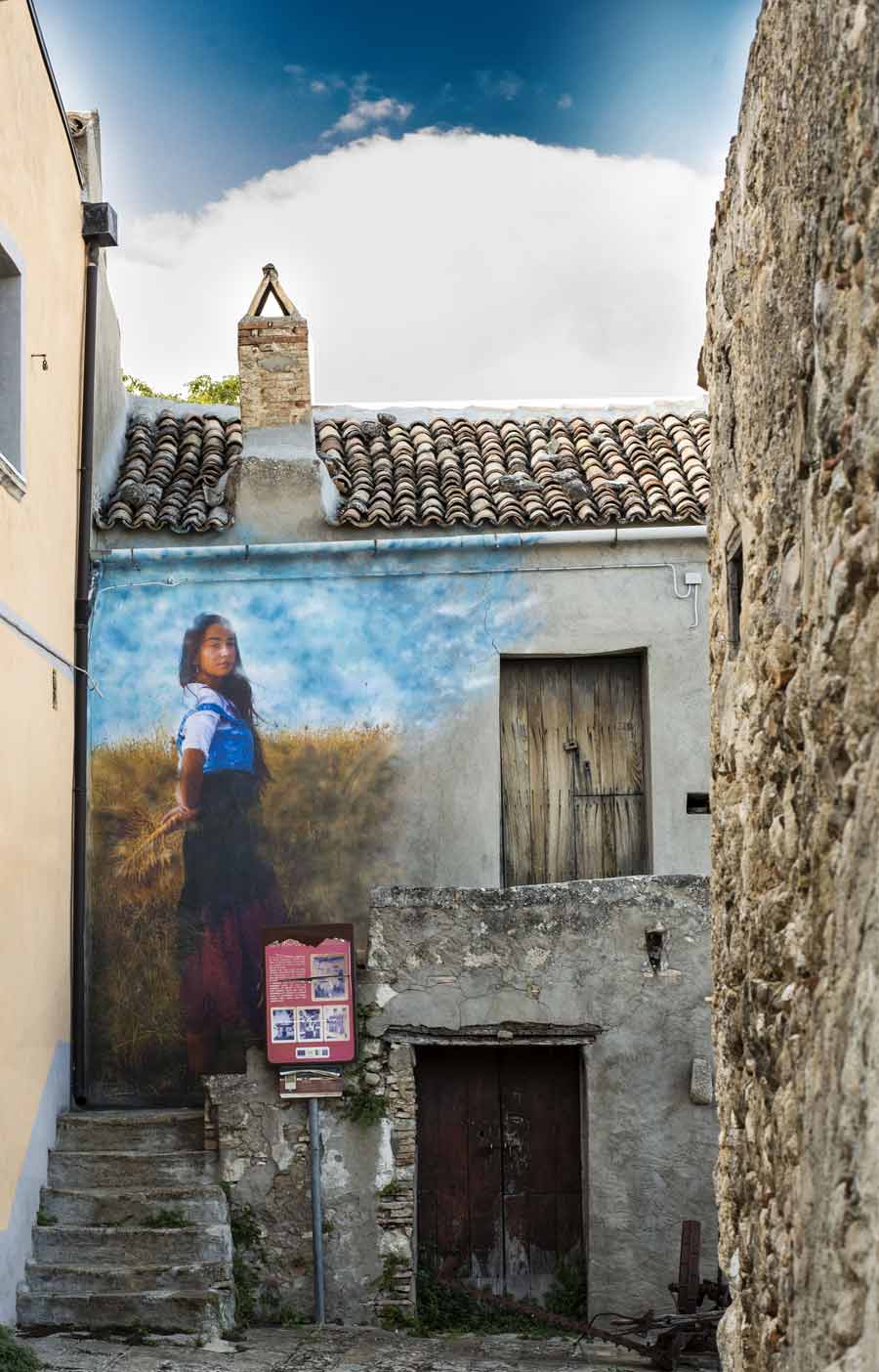
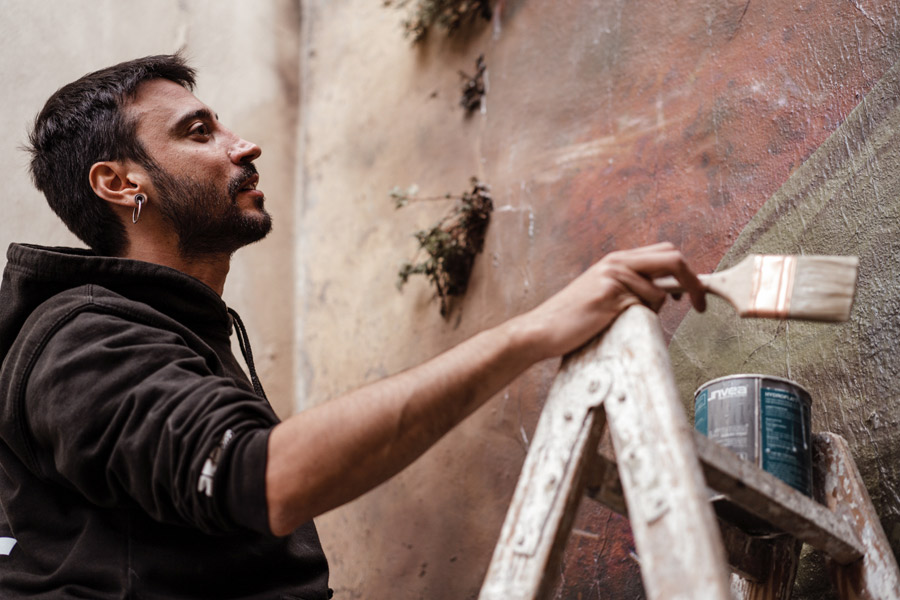
This is a little poetry that I wrote for the mural of the farmer in the street:
I am the fallen stone
The empty house with a torn roof
They are the endless fields
Dry of life
The rain and the hawk
Between the steady gazes
Between the vanished faces
I am the crack
The lair of remembrance
I am the unknown day
And you?”
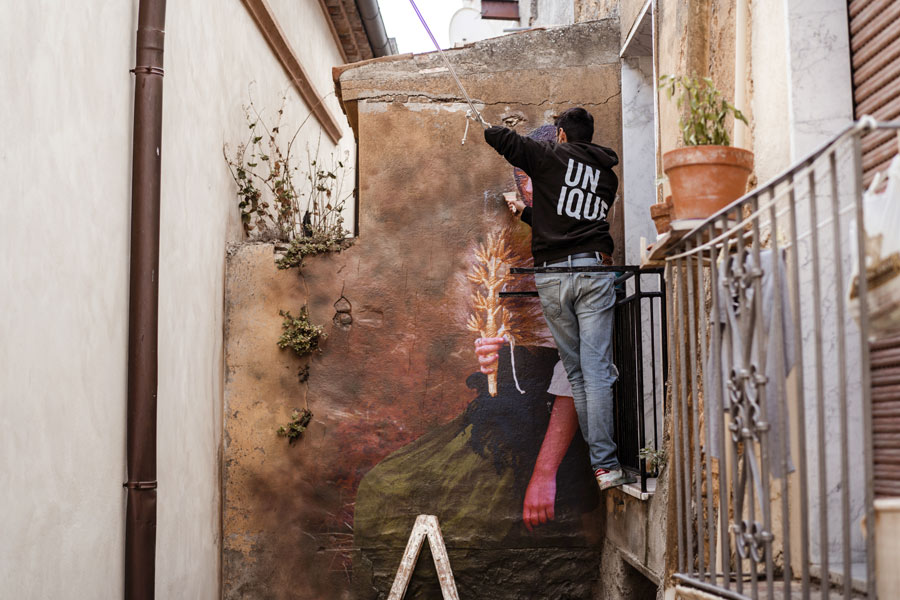
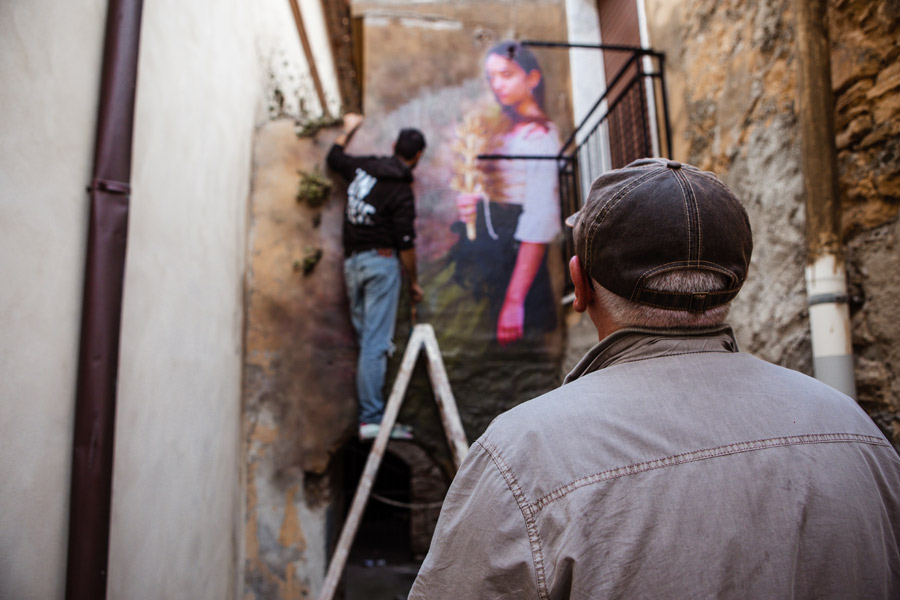
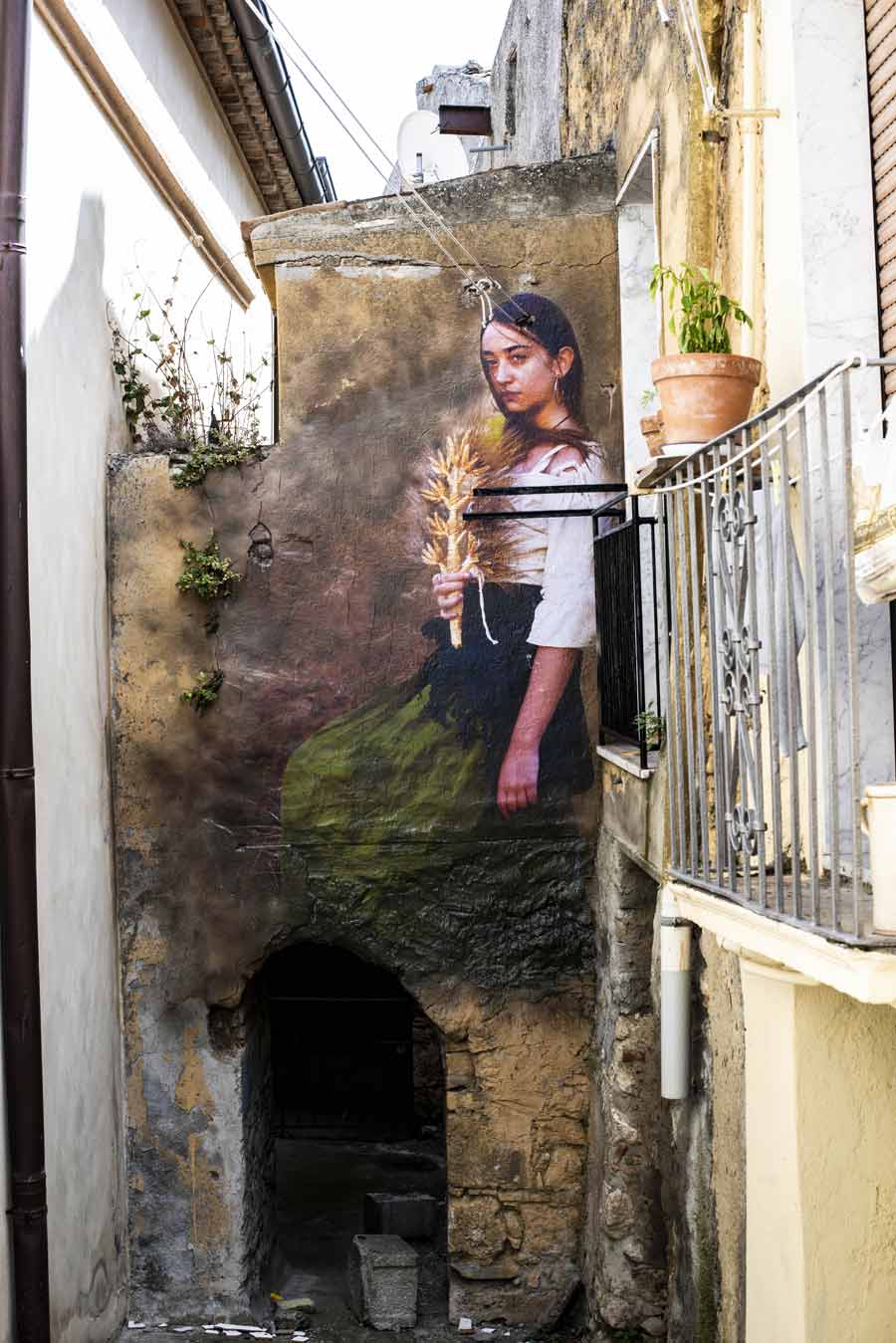
This work talks about the problem of depopulation. In 10 years Stigliano has lost almost all of its population, from 12,000 to 3,000 inhabitants. I used the verses of the poet Pio Rasulo, a native of Stigliano, who had already foreseen the depopulation of the town in 1961.
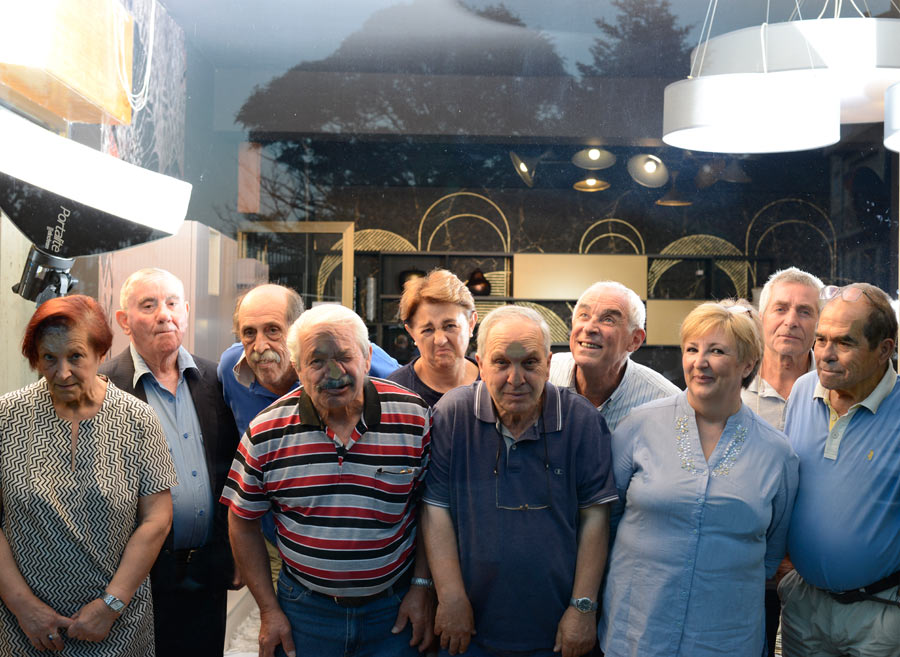
“Only the crows that gorge themselves here, in the bean fields, and the piles of wood guarding the crumbling walls will remain”.
I wrote this sentence on the wall and then covered it with a photo I took of the locals. Over time the card will be destroyed as the poetic verse appears. Just like the depopulation phenomenon, people will disappear and only crows will remain.
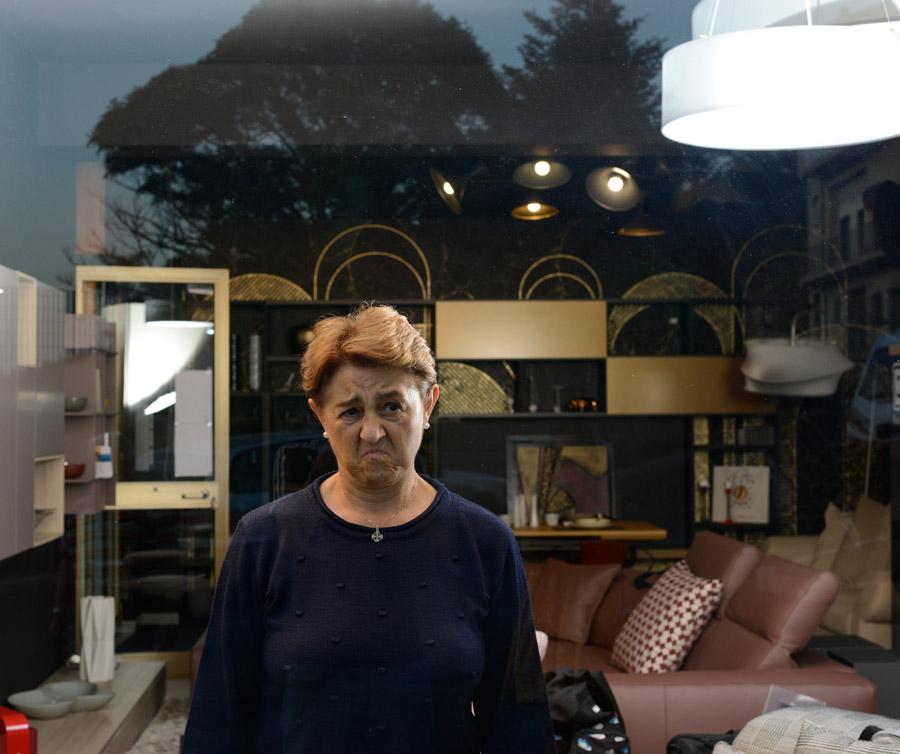
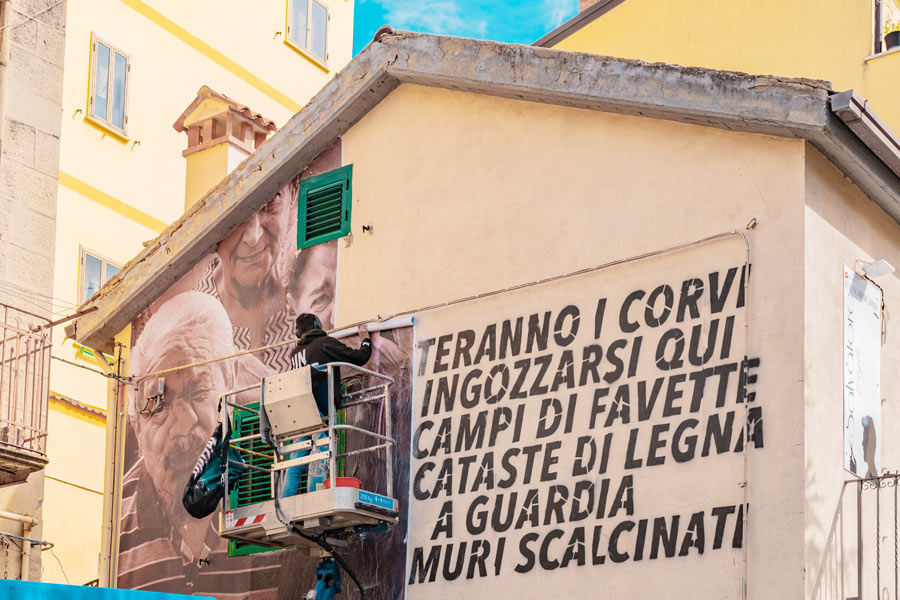
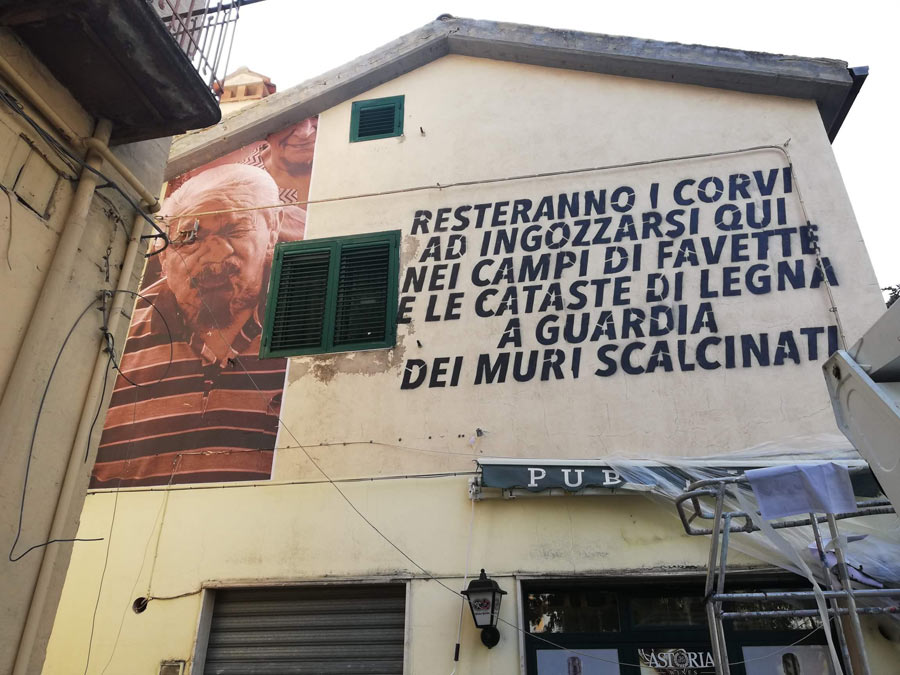
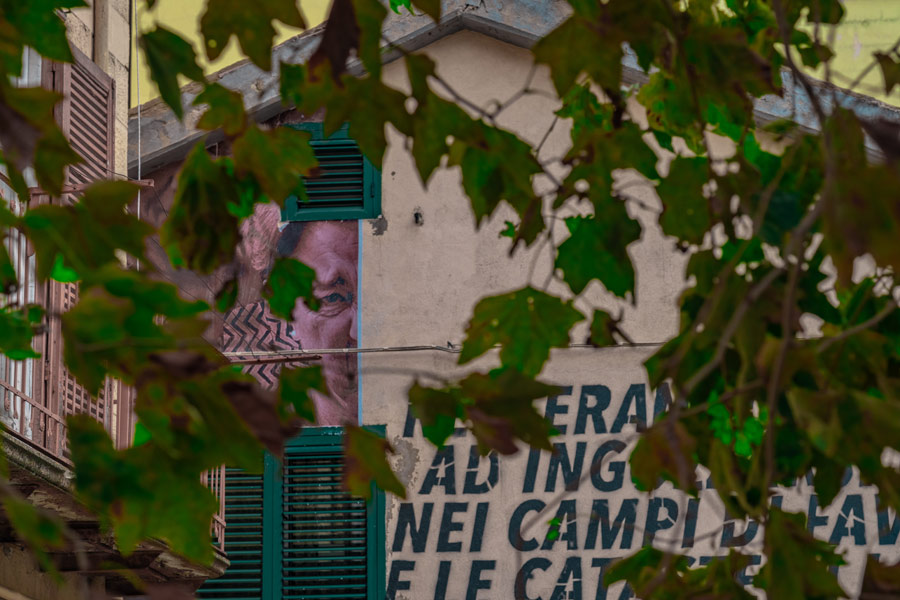
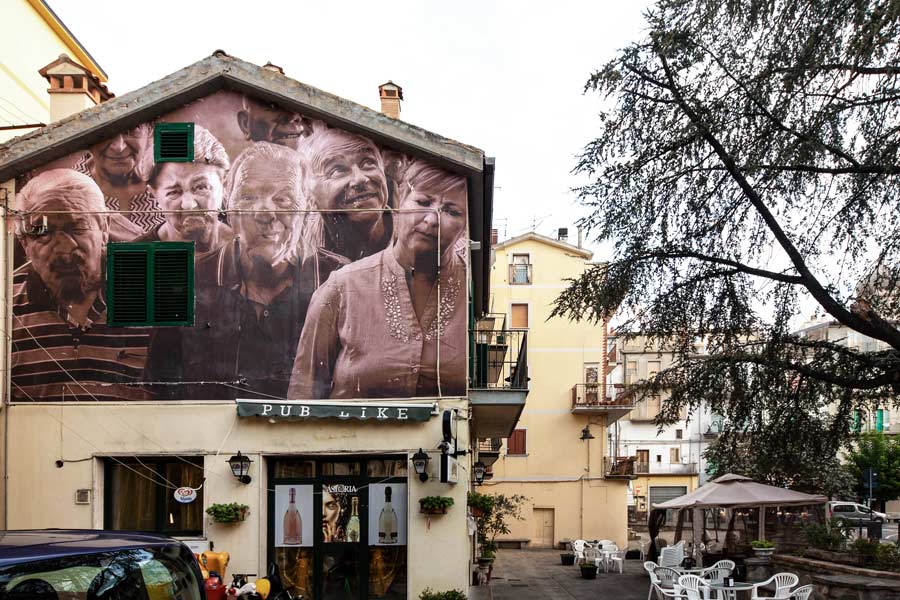
 BROOKLYN STREET ART LOVES YOU MORE EVERY DAY
BROOKLYN STREET ART LOVES YOU MORE EVERY DAY

